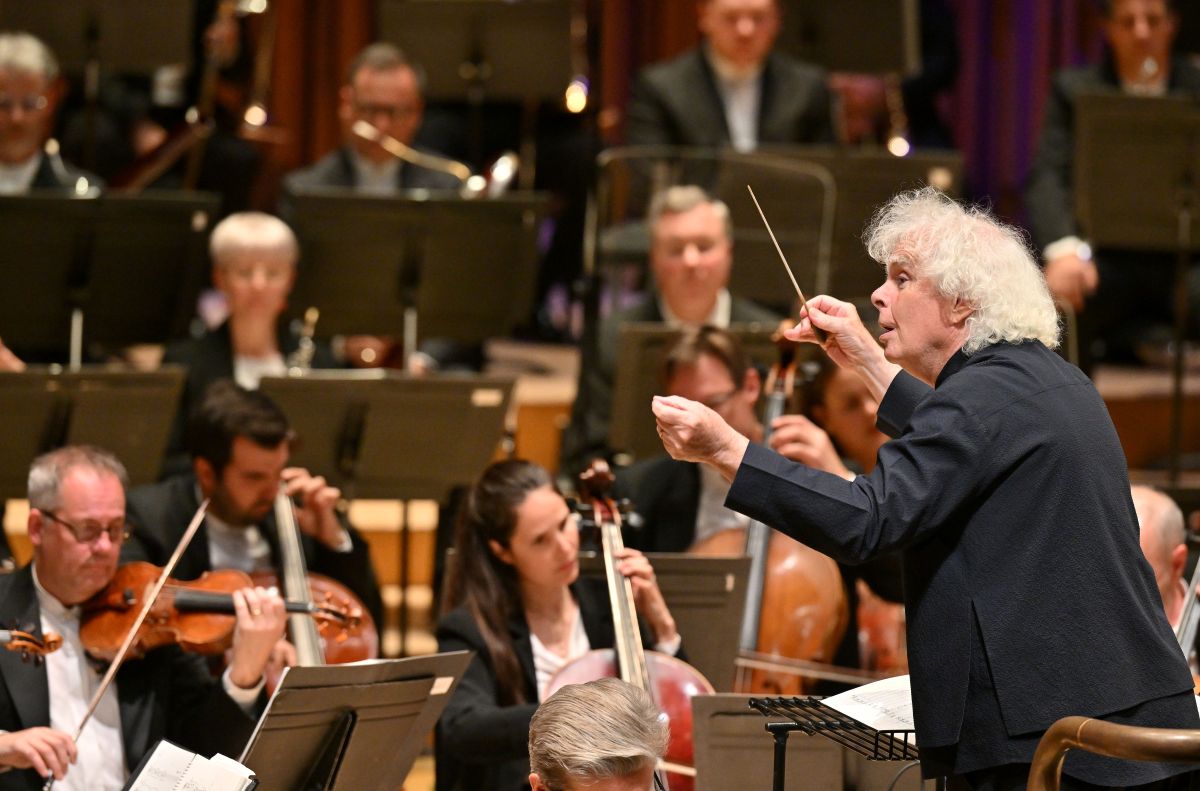Leoš Janáček’s opera Brouček (meaning “little beetle”) had a notoriously protracted genesis. The composer was determined to adapt the satirical novels of Svatopluk Čech but was initially denied the rights. Only after Čech’s death in 1908 did his family grant Janáček permission. Working with no fewer than seven librettists, Janáček finally brought Brouček to the stage. It premiered not in Brno, like his other operas, but at the Prague National Theatre.
The opera is a surreal satire in two parts. It follows the beer-soaked fantasies of Brouček, a Prague landlord, who first travels to the moon and later back to 15th-century Prague during the Hussite rebellion. The moon-dwellers are vegan and artistically inclined—hardly to Brouček’s liking. In the second act, he finds himself in the midst of medieval freedom fighters, where he proves a coward, hiding in a beer barrel before awakening in his familiar tavern. The triple casting of many roles cleverly mirrors the transformation of his earthly acquaintances into dream figures.
Janáček’s score is eclectic and demanding. It veers from cacophonous modernism to folk idioms, with waltzes, mazurkas, bagpipes, and clanging bells. There are also moments of soaring lyricism. Sir Simon Rattle, ever expressive, handled the rapid changes of tone and tempo with his usual deftness—once he’d returned to the podium for his forgotten baton, to the audience’s amusement.
The opera is rarely performed in concert, and for good reason. Its comic absurdities and fantastical settings benefit greatly from staging—especially today, when projection and video could so easily realise its outlandish imagery. As a concert work, its success relies almost entirely on the performers.
In this performance, Czech tenor Aleš Briscein (Mazal/Blankytný/Petřik) stood out with a stunning vocal performance. He navigated the tricky writing with clarity and finesse, his top register thrilling in the romantic passages. He eschewed black tie for a blue suit, white shirt, and red pocket square—Czech colours, perhaps a nod to his heritage. Briscein rarely appears in the UK; one hopes Jakub Hrůša’s new role at the Royal Concertgebouw Orchestra might change that. His rendition of the děti (“children”) aria was especially poignant.
British tenor Peter Hoare was ideally cast as the bumbling Brouček. His comic timing, physical presence, and clear Czech made him instantly likeable, and his joy at returning home—“Už jsem doma!”—was genuinely touching. Hoare’s rapport with the audience brought warmth and vitality to the performance.
Lucy Crowe (Málinka/Etherea/Kunka) was best as the ethereal moon-dweller Etherea, a role that suited her lighter soprano. The other roles, written high and requiring more agility, were less effective, and her Czech was at times difficult to understand.
Hungarian baritone Gyula Orendt (Sakristán/Svatopluk/Lunobor/Domšík) sang with authority and a thrilling tone, his Czech excellent. Among the smaller parts, Doubravka Novotná, Hanna Hipp, and a particularly characterful German tenor (Artist/Dohuslav/Vojta) stood out. Tenors Lukáš Zeman and Linard Vrielink were less vocally prominent by comparison.
Though unlikely to be Janáček’s most successful opera in concert, this performance was a triumph. The cast rose to the challenge of the vocal writing, and the London Symphony Orchestra and Chorus, under Rattle’s inspired leadership, gave a vivid account of this strange, seldom-heard work. One hopes it will soon be brought fully to life in a staged production—where Janáček’s eccentric, technicolour score can truly shine.
London Symphony Orchestra at Barbican Hall, London
Music by Leoŝ Janàĉek (1854-1928)
Libretto based on two novels by Svatopluk Čech
Conducted by Sir Simon Rattle
First performance National Theatre Prague 23 rd April 1920
Photo Credit Mark Allan
Cast includes Peter Hoare, Aleŝ Briscein, Lucy Crowe, Gyula Orendt, Lukáŝ Zeman, Doubravka
Novotnà, Hanna Hipp, Arttu Kataja, Stephan Rügamer, Linard Vrielink
Running time 2 hours 50 minutes with one interval
4 th May 2025. Further performance 6 th May 2025

